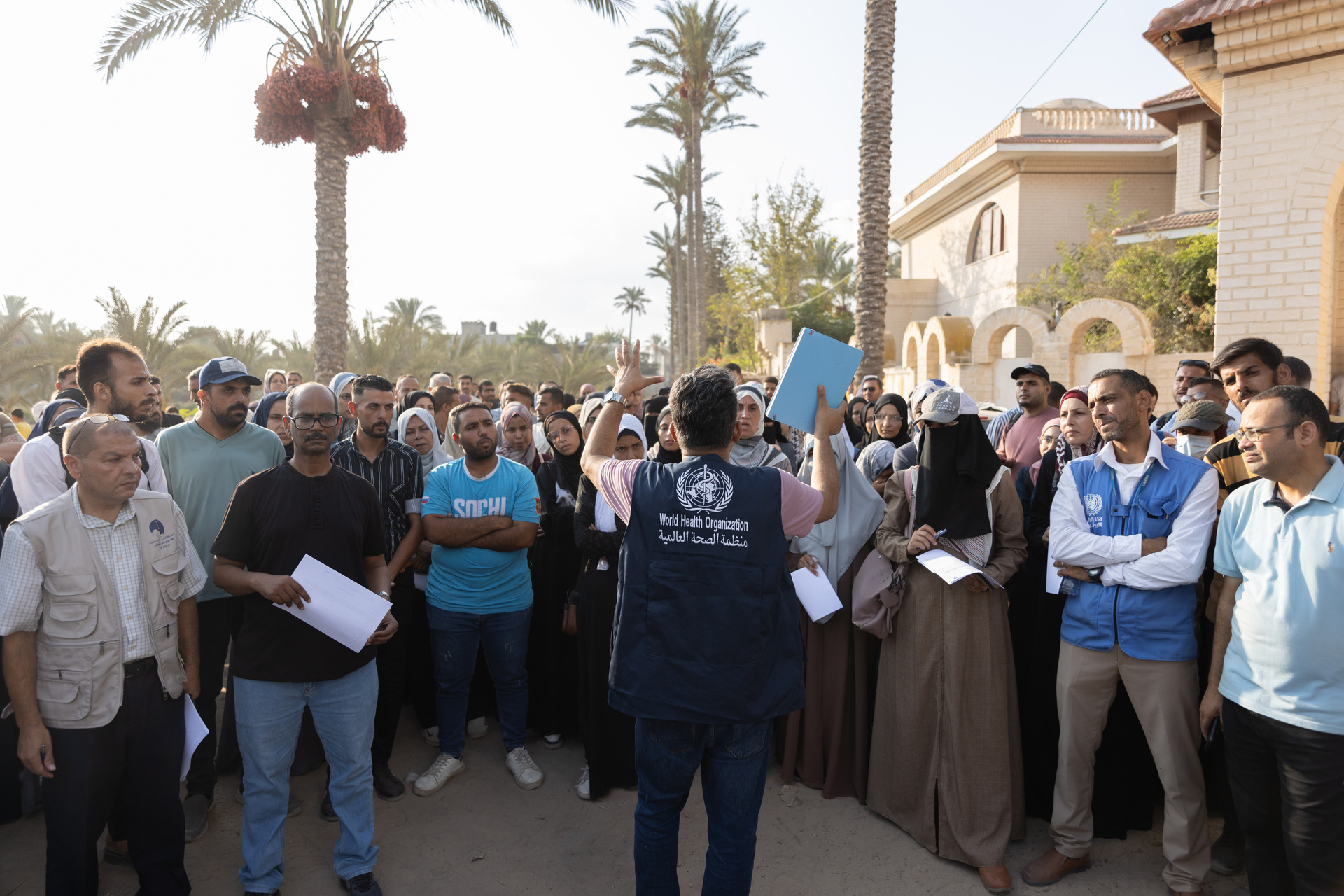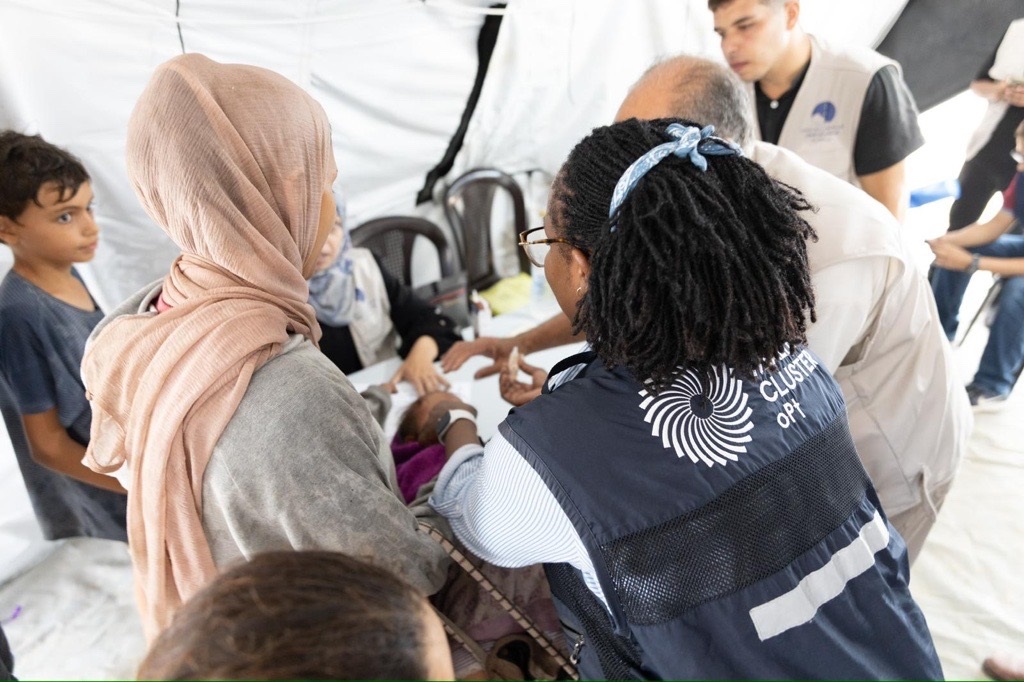The Polio Vaccination Campaign in Gaza, organized by WHO, UNICEF, UNRWA, and the Palestinian Ministry of Health (MOH), with the support of 40 Health Cluster partners, has completed its first round despite challenging conditions. The campaign, which also involved 2,180 health and outreach workers, vaccinated 559,161 children under the age of 10 years.

Considering Gaza's volatile environment, door-to-door campaigns were not feasible. Instead, vaccinations were conducted in health facilities and through mobile outreach and transit teams. These teams were strategically deployed to ensure access to as many children as possible, even in conflict-affected areas.
To implement the campaign, 1.6 million doses of the type 2 novel oral polio vaccine (nOPV2) were shipped to Gaza, along with the necessary cold storage equipment to maintain vaccine efficacy. A post campaign monitoring exercise was conducted from 12-15 September and the results will be shared as soon as it is finalized. After analyzing post-campaign data, adjustments will be made, and the second round of the campaign is anticipated to be conducted around mid-October.

In addition to polio vaccinations, health authorities are considering integrating other urgent interventions to address the broader collapse of Gaza's healthcare system, as well as the destruction of water and sanitation infrastructure. This vaccination effort is part of a broader initiative to mitigate the resurgence of infectious diseases in Gaza and safeguard the health of its population.
Key asks for the second round of the vaccination campaign:
- Ensure prompt entrance of vaccines, cold chain, finger markers etc. into Gaza using TLV airport
- Allow a sufficient amount of cash to enter Gaza
- Ensure sufficient fuel allocation
- Restore telecommunications to allow for effective risk communication and community mobilisation
- Facilitate the logistics and movement coordination to move health workers, humanitarian personnel, volunteers, and the population as well as supplies during the campaign
- Safe and sustained access within Gaza
